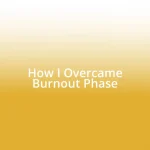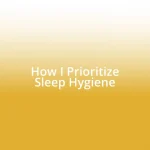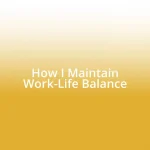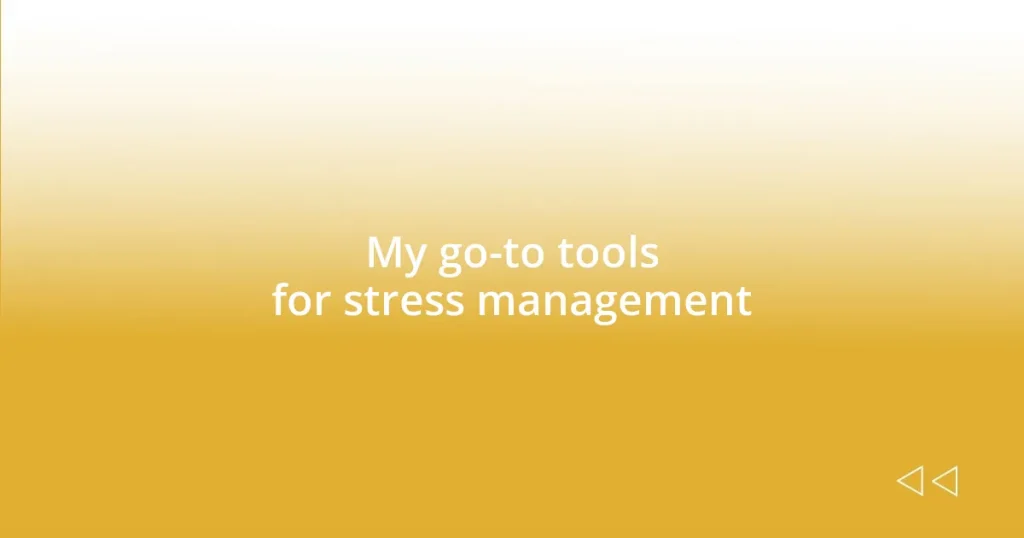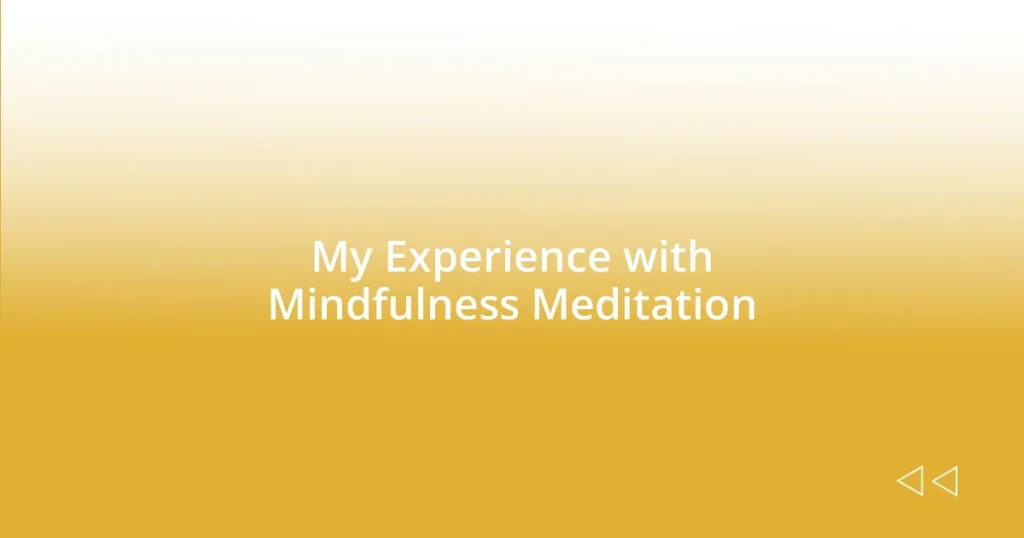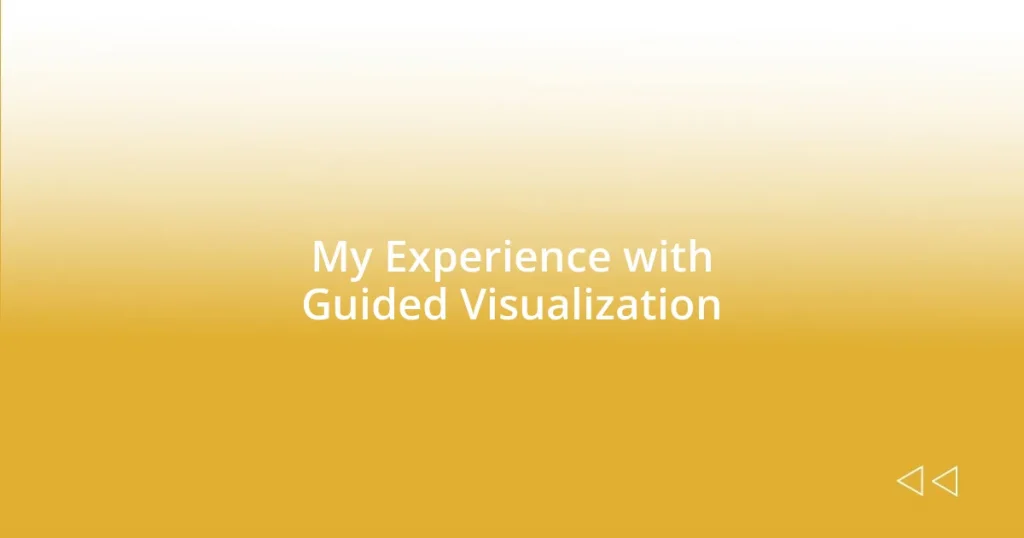Key takeaways:
- Stress management tools are personal and varied, including mindfulness, journaling, yoga, and exercise, each offering unique benefits.
- Effectively managing stress improves mental and physical health, enhances productivity, and fosters better relationships.
- Practices like journaling and gratitude help clarify emotions and shift focus from stressors to positive elements in life.
- Using apps for meditation, mood tracking, and sleep improvement can significantly enhance stress management and overall well-being.
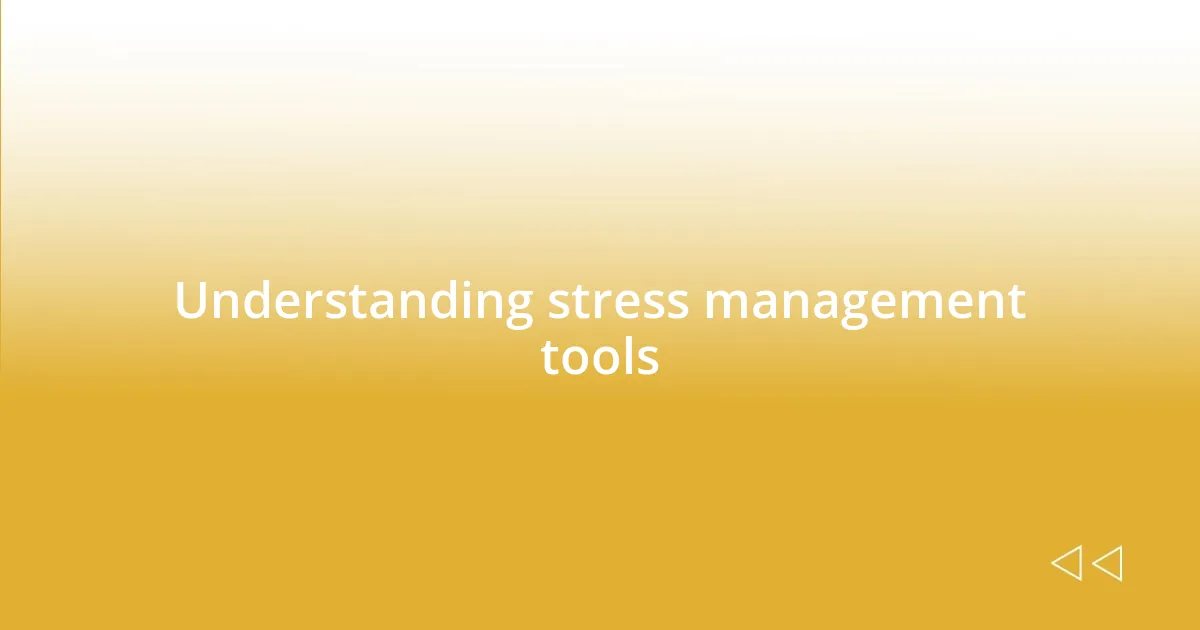
Understanding stress management tools
Stress management tools can come in various forms, but I find that their effectiveness heavily relies on personal connection. For instance, when I first tried mindfulness meditation, I was skeptical. However, after a few minutes of focused breathing, I realized how transformative it could be—like lifting a heavy weight off my shoulders. Have you ever had that moment where everything just quiets down?
Another critical aspect of stress management tools is finding what resonates with you. I remember trying journaling during a particularly chaotic time in my life. Putting my thoughts on paper helped me sift through the turmoil, turning vague anxieties into actionable insights. Isn’t it fascinating how something as simple as writing can shift our perspective?
Lastly, it’s essential to recognize that stress management isn’t a one-size-fits-all approach. I’ve dabbled in yoga, exercise, and aromatherapy, but each tool offered unique benefits that catered to my emotional landscape at different times. Which tools have you tried, and how have they shaped your understanding of managing stress?
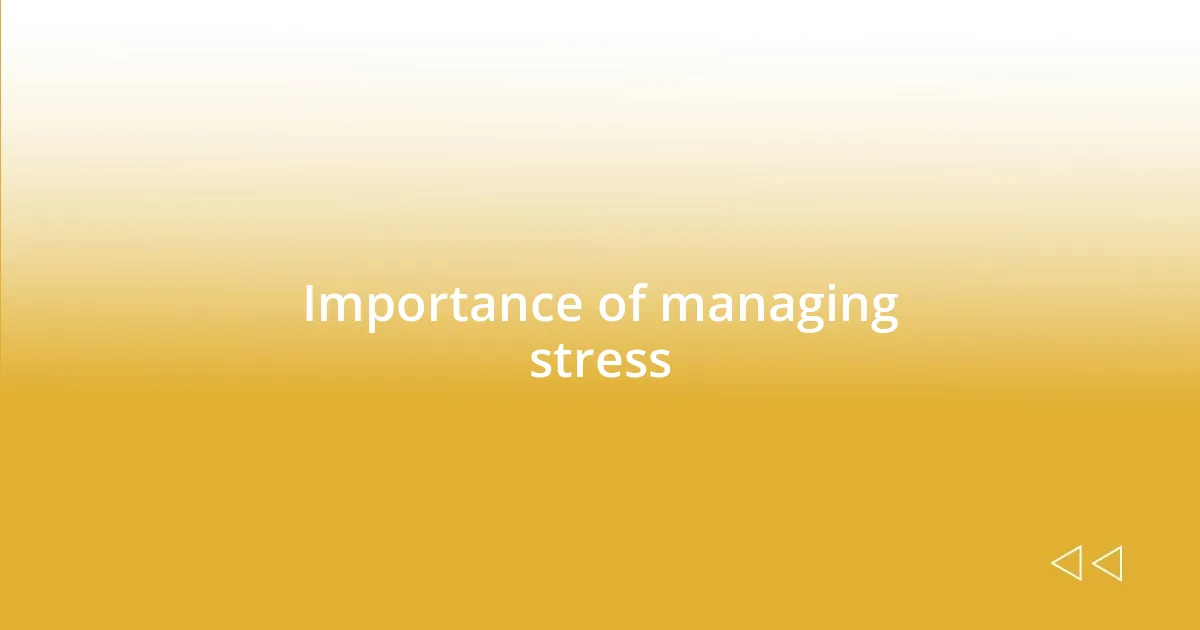
Importance of managing stress
Managing stress is vital for maintaining both our physical and mental health. From my experience, chronic stress can lead to a range of health issues, including anxiety and heart disease. I remember a particularly stressful period at work; I felt constantly on edge, and my body began to signal distress through headaches and fatigue. Recognizing that stress could manifest physically was a wake-up call for me.
Moreover, effectively managing stress can significantly enhance our productivity and relationships. I realized during a tough project that my irritability affected my communication with colleagues, which only added to the strain. After integrating stress-reduction techniques like quick breaks and deep breathing, I noticed improved interactions with my team, fostering a more supportive work environment. Isn’t it interesting how reducing stress can transform not just your mood but the dynamics around you?
Lastly, taking steps to manage stress allows us to cultivate a greater sense of self-awareness. I’ve found that through practices like meditation, I’ve become more attuned to my emotions and reactions. This newfound awareness has empowered me to respond to stressors more thoughtfully rather than react impulsively. How has understanding your stress affected how you navigate challenges?
| Benefits of Managing Stress | Consequences of Ignoring Stress |
|---|---|
| Improved Physical Health | Increased Risk of Illness |
| Enhanced Productivity | Decreased Efficiency |
| Better Relationships | Strained Connections |
| Greater Self-Awareness | Emotional Reactivity |
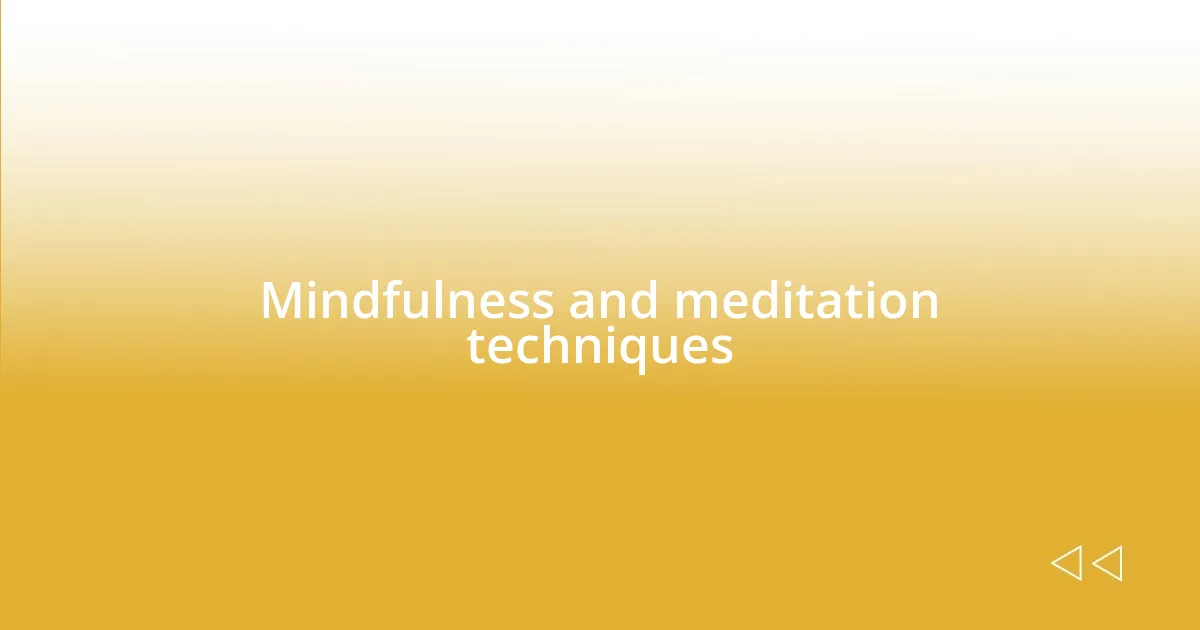
Mindfulness and meditation techniques
Mindfulness and meditation techniques offer a unique way to find calm amid chaos. When I first started exploring mindfulness, it felt oddly comforting to be present with my thoughts and feelings—no judgment, just acknowledgment. One particularly hectic afternoon, I took five minutes to engage in mindful breathing. I closed my eyes, focused only on my breath, and it was like hitting the pause button on my overwhelming thoughts. It was a gentle reminder that sometimes, all we need is to be present.
Here are a few techniques I personally find helpful:
-
Body Scan Meditation: Lying down or sitting comfortably, progressively focus on each part of your body, starting from your toes to the crown of your head. This practice helps in releasing tension.
-
Guided Imagery: Visualizing a peaceful scene while listening to calming audio or music can transport you mentally, offering a break from stressors.
-
Mindful Walking: I often take strolls where I focus solely on the sensation of my feet on the ground and the sounds around me. It turns a simple walk into a therapeutic experience.
-
Breathing Exercises: Engaging in deep, slow breaths—like inhaling for a count of four, holding for four, and exhaling for six—can ground you quickly.
Incorporating these techniques into my daily routine has transformed how I manage stress, showing me that true peace often resides in the present moment.
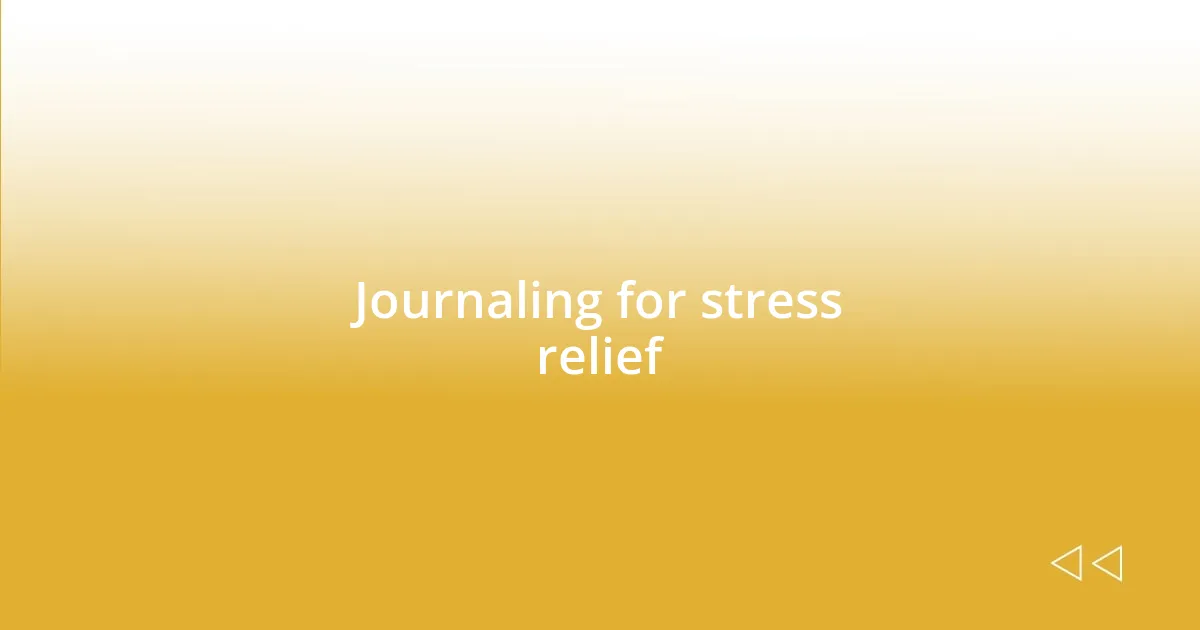
Journaling for stress relief
One of my favorite ways to tackle stress is through journaling. There’s something incredibly therapeutic about putting pen to paper and releasing my thoughts. I remember one evening after a particularly taxing day, I sat down and just let it all flow—my worries, frustrations, and even a few triumphs. By the end, I felt lighter, as if I had unburdened my mind onto the pages. Isn’t it fascinating how externalizing our inner thoughts can lead to such emotional relief?
I often use journaling to reflect on events that trigger stress. For instance, I write down specific situations that caused unease, along with my reactions. This practice not only clarifies my feelings but also helps me identify patterns in my stress responses. It’s like having a conversation with myself, guiding me toward better coping strategies. Have you ever noticed how understanding the root of your stress can empower you to manage it more effectively?
Another technique I find powerful is gratitude journaling. At the end of each day, I jot down three things I’m thankful for. This simple act shifts my focus from stressors to positive aspects of my life, helping me regain perspective. I distinctly recall a period when negative thoughts were overwhelming, and taking a moment to recognize the good made a significant difference in my mood. What small joys can you celebrate today that might shift your outlook?
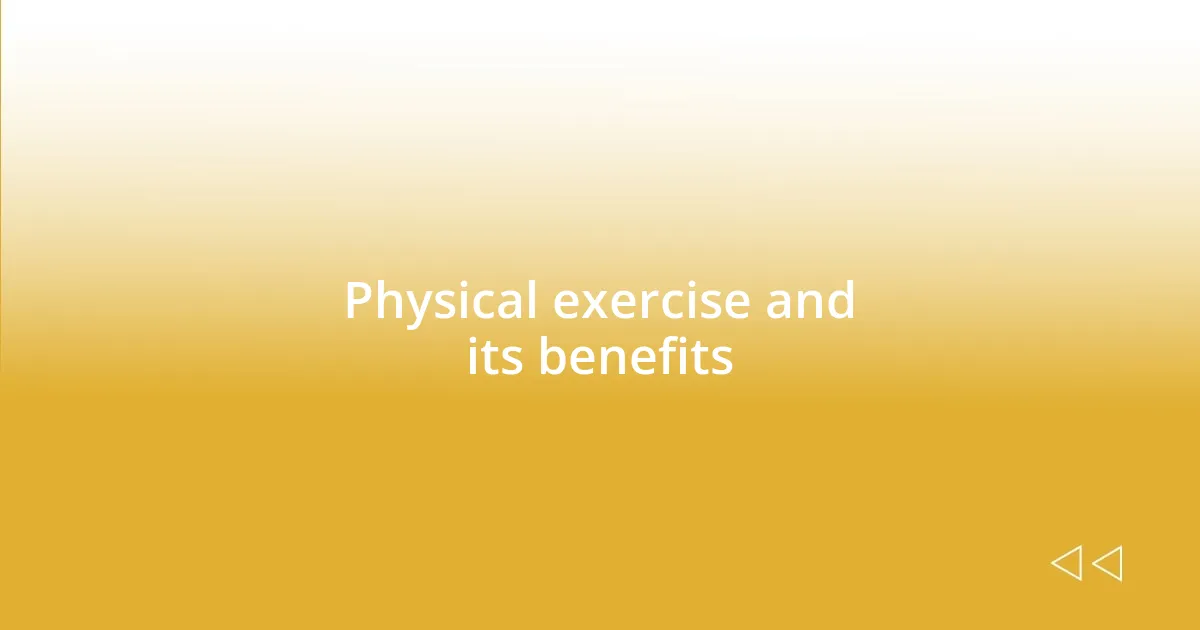
Physical exercise and its benefits
Physical exercise serves as a cornerstone of my stress management toolkit. I remember one chilly Saturday morning when I decided to lace up my running shoes and hit the park. With every stride, I felt the weight of my worries lift—there’s something almost magical about moving your body that frees your mind. Have you ever noticed how a brisk walk or a good run can make things feel a little clearer? For me, it’s like a reset button, allowing me to come back to my thoughts with renewed clarity.
When I engage in activities like yoga or resistance training, I often experience an immediate drop in my stress levels. During a busy week, I might find myself overwhelmed. Taking those few moments to stretch or lift weights does more than just strengthen my body; it strengthens my resolve. Have you ever tried to channel your tension into something physical? I find that focusing on my breath during yoga poses not only calms my mind but also enhances my overall sense of well-being, providing a much-needed breather in a hectic life.
Moreover, I absolutely love group classes—there’s an incredible energy that comes from exercising alongside others. Just last week, I joined a spinning class after a long day at work. The shared enthusiasm and the pulsating music pushed me through my fatigue and into a euphoric state. Every pedal stroke felt like I was racing away from my stressors. Isn’t it fascinating how community can amplify personal effort? The camaraderie in those moments makes me feel connected and supported, reminding me that we’re all in this together.
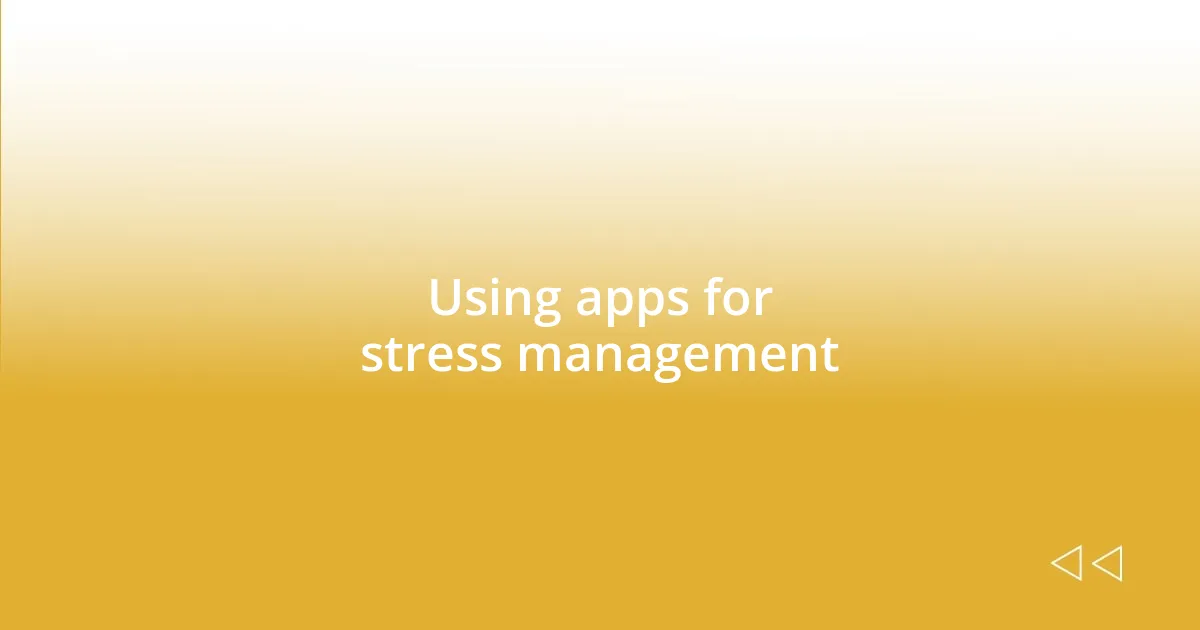
Using apps for stress management
Using apps for stress management has become a game changer for me. I remember discovering a meditation app that promised just a few minutes of guided breathing each day. Initially, I was skeptical, thinking, “Can this really help me?” But after just one session, I felt a shift in my mindset. The calming voice and tranquil music transported me to a serene space, making those overwhelming moments feel a bit more manageable. Have you ever tried something new and found it surprisingly effective?
I also love tracking my mood with an app that helps me identify trends over time. It’s eye-opening to look back and see the days I felt particularly stressed or happy. Just last month, I noticed a recurring pattern: my stress levels spiked on days I skipped my morning routine. This insight not only prompted me to stick to my habits but also gave me a sense of control over my mental well-being. How often do we overlook the simple habits that can significantly impact our emotional state?
Additionally, I’ve recently started using an app for sleep improvement, and it’s been a revelation. I used to toss and turn, ruminating over the day’s events, but now, I access calming soundscapes right before bed. One night, I drifted off to the gentle sounds of rain, and I woke up feeling refreshed. Isn’t it incredible how technology can support our well-being in such thoughtful ways? The little things, like creating a peaceful atmosphere, can make all the difference.



